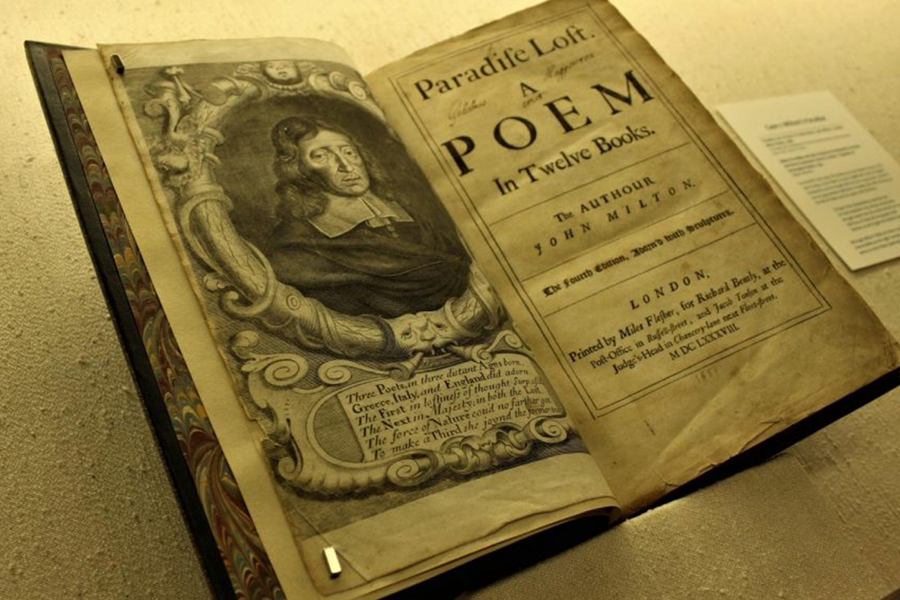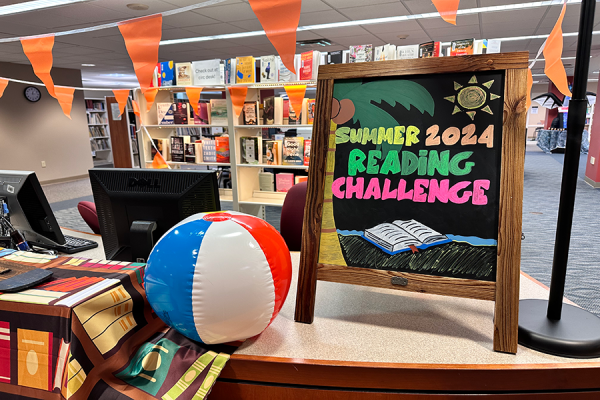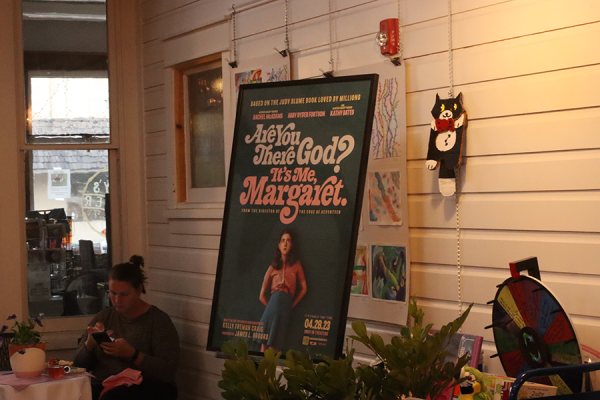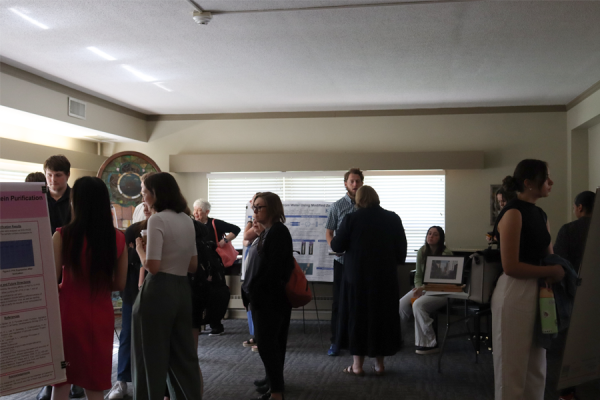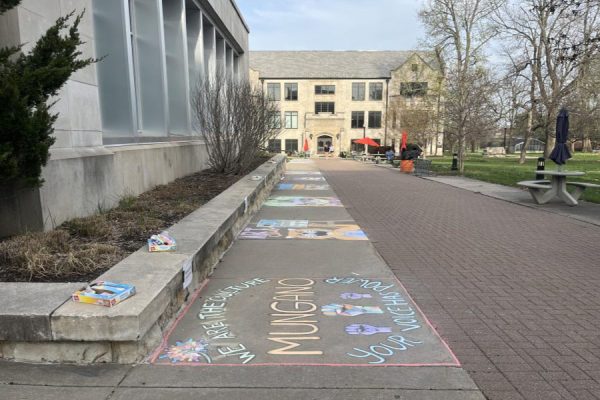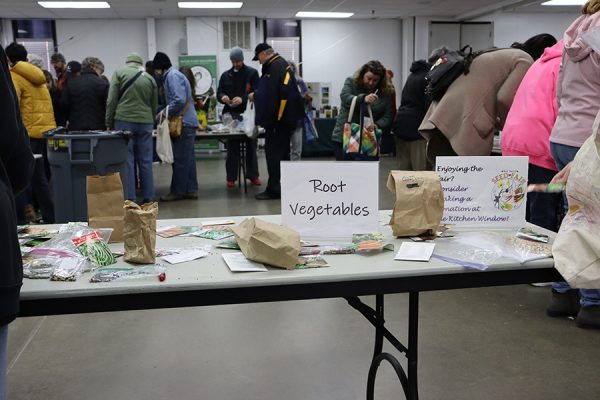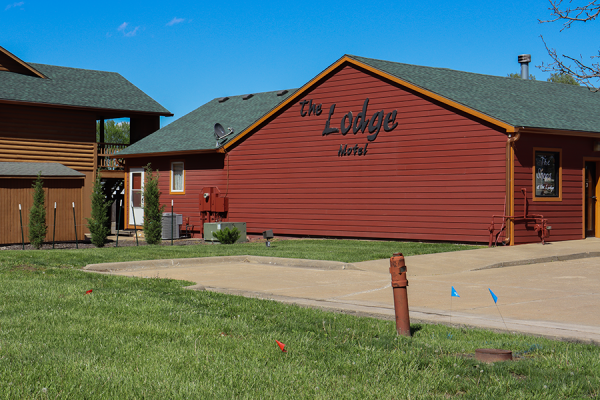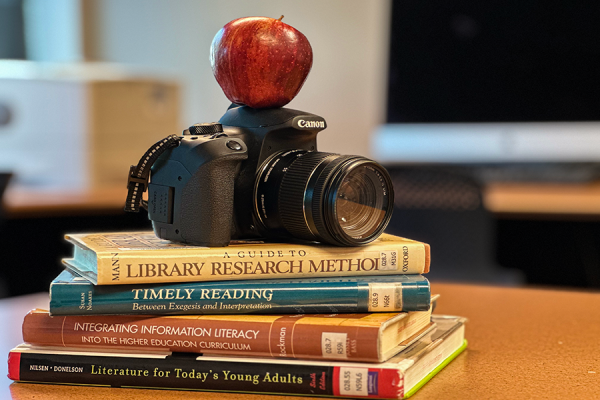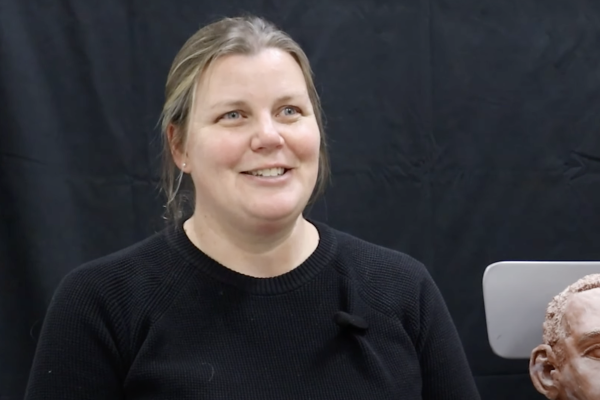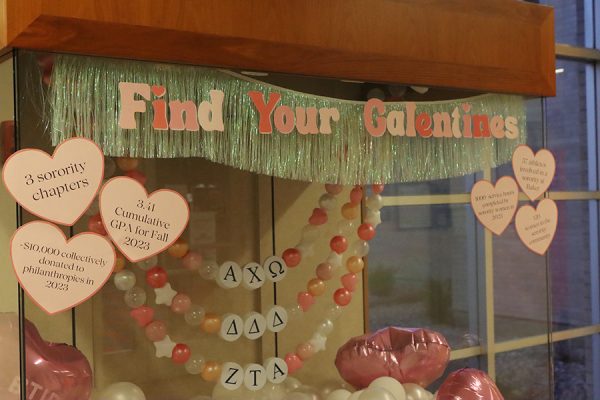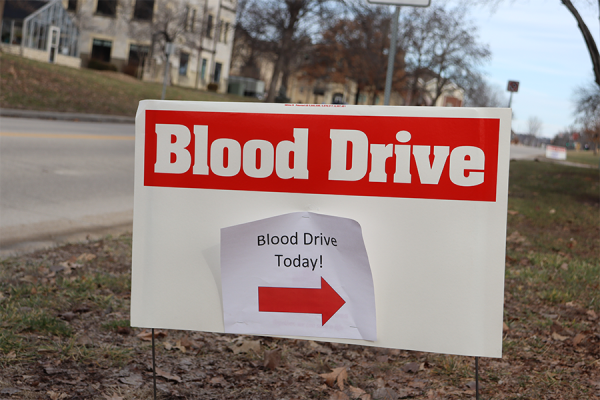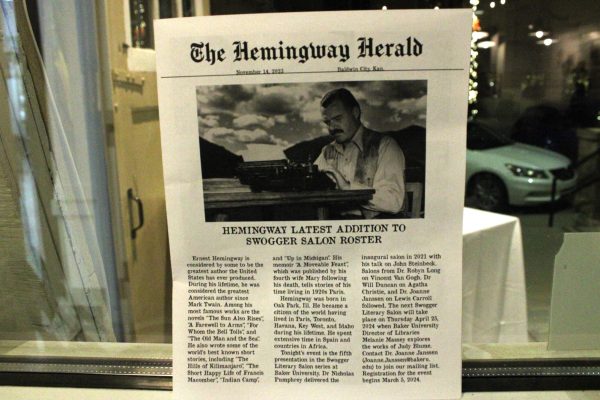Paradise Lost exhibit opens at Quayle Bible Collection
Each year, the Quayle Bible Collection at Baker University displays a new, specially curated exhibit. This year, Quayle curator Nick Pumphrey, in conjunction with 2021 Baker graduate Jamie Pellikaan, Baker Emeritus Faculty member Lucy Price and Claremont Graduate University professor Lori Anne Ferrell, designed the 2021-22 exhibit entitled “On the Road from Paradise: John Milton’s Influence on Religion, Literature, and Culture.”
Paradise Lost, an epic poem by John Milton originally published in 1667, is widely regarded as one of the most influential pieces of poetry in the English language.
The exhibit pamphlet reads, “the text itself, regardless of theological contributions, is considered remarkable. As a result, Milton’s Paradise Lost is arguably the singular most important piece of English literature. More than Pilgrim’s Process or the works of Shakespeare.”
As an influential religious text, Pumphrey was surprised to learn the Quayle did not own a copy of Paradise Lost.
“About two years ago now, one of our previous curators, [Dr. John Forbes] passed away. In honor of him, his wife donated some money so we could buy something that the collection didn’t have. We didn’t have Paradise Lost,” Pumphrey said. “It’s one of the most influential texts to modern day Christians.”
Associate Professor of English Joanne Janssen agrees that Paradise Lost is an incredibly influential text. Not only has it influenced religion, but it laid the groundwork for modern literature.
“When people talk about great poetic epics, the very first one that they refer to as the best, greatest example that we have in English is Paradise Lost,” Janssen said.
Janssen explained that Milton struggled with being blind while conceiving Paradise Lost, which adds to the impressive nature of the epic.
“He’s composing this poem in his mind and they say that he could retain up to 40 lines at a time and then he would have other people dictate them for him,” Janssen said. “That’s kind of amazing on its own but the story of its creation and its craftsmanship is really impressive. I think obviously the important thing, the most significant thing is the quality of the work itself.”
Janssen also explained that the poem was monumental at the time because it was written in blank verse, as opposed to traditional rhyming poems.
“Previously, poems were written to rhyme and that’s what was sort of considered to be the right or best or appropriate way to write poetry. Milton decided that wasn’t what he wanted to do,” Janssen said. “It’s hard to explain how much he was railing against some of the institutions that were governing ideas about how you should write and what was considered good literature.”
Pumphrey used Forbes’s donation to purchase a 1688 edition of the book, which is the first edition to include illustrations.
“We built a whole exhibit based on that one text. The idea is what influenced John Milton to write Paradise Lost and what then does the book influence,” Pumphrey said.
The first cases of the exhibit focus on the Bible. Various versions of the Bible were used by Milton when writing the book, including his own personal translations. Pumphrey explained several other items on display.
“We’ve got the political stuff going on at the time. Then, we’ve got stuff on common biblical interpretations at the time. Then, artists who illustrated the work years after,” Pumphrey said.
Information about illustrators William Blake, Henry Fuseli and Gustave Doré is featured in the exhibit. The final cases of the exhibit explore the works influenced by Milton, extending even as far as modern day comic books.
Pumphrey explained how the imagery in Paradise Lost has influenced mainstream interpretations of Christianity.
“A lot of what Christians know about Satan and Lucifer is not in the Bible. It’s in Paradise Lost,” Pumphrey said. “It influences Christianity through the idea of Satan becoming the serpent, which is not in the Bible, or the fall from Heaven, which isn’t really in the Bible.”
“On the Road from Paradise: John Milton’s Influence on Religion, Literature, and Culture” will be open from 1 p.m. to 4 p.m. every Saturday and Sunday until May 15 of next year. To arrange a visit outside of these times or to schedule a group tour, contact the Quayle Bible Collection by emailing [email protected] or calling 785-594-8414. For more information about the Quayle Bible Collection, click here.

Hunter is a freshman from Shawnee, Kansas. She is a sociology major with a minor in social justice. She is a member of Mungano and the SAC Cultural and...
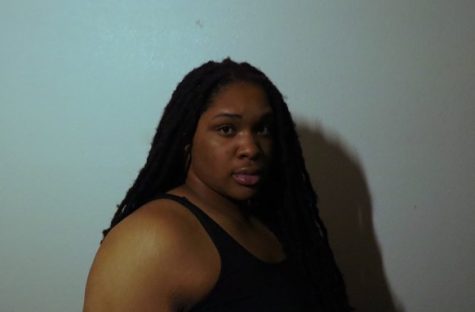
Colbie is a Senior at Baker. She is majoring in mass media, working towards becoming a photojournalist and is also a member of the women’s track and...


